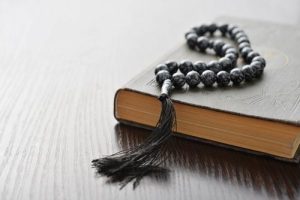
From a young age, we are taught the virtues of kindness, selflessness, and generosity. Humility is a trait deeply loved by Allah (SWT), and these values take on deeper meaning during the sacred time of Udhiyah, also known as Qurbani—a cornerstone of Islamic worship that embodies obedience and spiritual devotion.
The story of Prophet Ibrahim (AS) stands as the ultimate testament to unwavering faith. When commanded by Allah (SWT) to sacrifice his beloved son Ismail (AS), Prophet Ibrahim submitted without hesitation. In His infinite mercy, Allah replaced Ismail with a ram, marking this moment as a divine test of devotion. This act of obedience forms the foundation of Qurbani, reminding Muslims each year of the profound power of trust in God’s will.
WHAT IS UDHIYAH IN ISLAM?
Udhiyah, or Qurbani, is the ritual sacrifice of designated animals during the Islamic month of Dhul Hijjah, performed after Eid al-Adha prayers. It is a sacred act of worship that commemorates Prophet Ibrahim’s legacy and is a spiritual obligation for all eligible Muslims.
“So turn in prayer to your Lord and sacrifice [to Him alone].”
Surah Al-Kawthar (108:2)
RULES AND ELIGIBLE ANIMALS FOR QURBANI
To ensure the Qurbani is valid and accepted, specific conditions must be met:
-
The sacrifice must be performed after Eid al-Adha prayers, during the days of Tashreeq (10th–13th Dhul Hijjah).
-
Eligible animals include:
-
Sheep and goats (each representing one share),
-
Cows and camels (each representing seven shares).
-
-
The animal must be healthy, of sound age, and free from any defects.
-
The slaughter must be carried out facing the Qiblah, invoking the name of Allah (SWT), and should be conducted with compassion and respect for the animal.
Understanding and adhering to these guidelines ensures that your act of Qurbani fulfills its spiritual purpose.
THE BLESSING OF SHARING: QURBANI DISTRIBUTION
After the sacrifice, the meat is divided into three equal portions:
-
One-third for your family,
-
One-third for friends and relatives,
-
One-third for those in need.
This distribution symbolizes compassion, unity, and shared blessings. It strengthens the bonds within communities and ensures that the joy of Eid reaches every table, especially among the most vulnerable.

